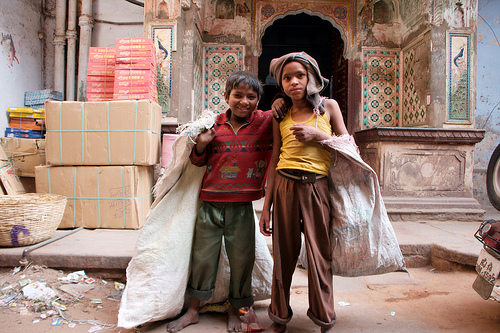 To assist companies, UNICEF has released a set of tools to facilitate the implementation of responsible business practices that promote the health and welfare of children. UNICEF has called upon companies internationally to do business differently so that their practices are more responsible and conscious of children’s rights.
To assist companies, UNICEF has released a set of tools to facilitate the implementation of responsible business practices that promote the health and welfare of children. UNICEF has called upon companies internationally to do business differently so that their practices are more responsible and conscious of children’s rights.
Leila Gharagozloo-Pakkala of UNICEF stated that children have both direct and indirect roles in business as “…consumers, family members of employees, young workers, future employees and business leaders, and as citizens in the communities and environments in which business operates. Business – whether large or small – therefore inevitably interacts with and affects the lives of children in direct and indirect ways.”
The Convention on the Rights of the Child defines the basic human rights that belong to children everywhere. Despite the rights guaranteed under this convention, hundreds of millions of children around the world are deprived of their basic rights; they are engaged in child labor, deprived of an education, and denied adequate healthcare. As a highly vulnerable population, children require extra protection from the potential impacts of business.
To facilitate this, UNICEF developed basic guidelines for businesses to follow in 2012. The report “Children’s Rights and Business Principles” suggests that companies:
- Meet their responsibility to respect children’s rights and commit to supporting the human rights of children
- Contribute to the elimination of child labour, including in all business activities and business relationships
- Provide decent work for young workers, parents and caregivers
- Ensure the protection and safety of children in all business activities and facilities
- Ensure that products and services are safe, and seek to support children’s rights through them
- Use marketing and advertising that respect and support children’s rights
- Respect and support children’s rights in relation to the environment and to land acquisition and use
- Respect and support children’s rights in security arrangements
- Help protect children affected by emergencies
- Reinforce community and government efforts to protect and fulfill children’s rights
In December 2013, UNICEF supplemented this material with several workbooks and tools to further guide companies in responsible business practices. The “Children’s Rights in Policies and Codes of Conduct” tool provides recommendations on how to integrate children’s rights into policies and codes of conduct. Another tool on “Children’s Rights in Impact Assessments” identifies ways to assess the impact of business on children and their rights. Finally, the “Children’s Rights in Sustainability Reporting” tool helps businesses to report on actions they have taken to facilitate children’s rights.
“When it comes to children, we all need to do more. That is why I welcome the launch of the Children’s Rights and Business Principles … The Principles provide the first comprehensive framework for business to consider their impact on the rights and well-being of children. They set out steps that all businesses can take to integrate child rights into their operations,” explained Ban Ki-moon, Secretary General of the United Nations.
Creative Commons Love: Christian Haugen on Flickr.com
Written by Amanda Lubit